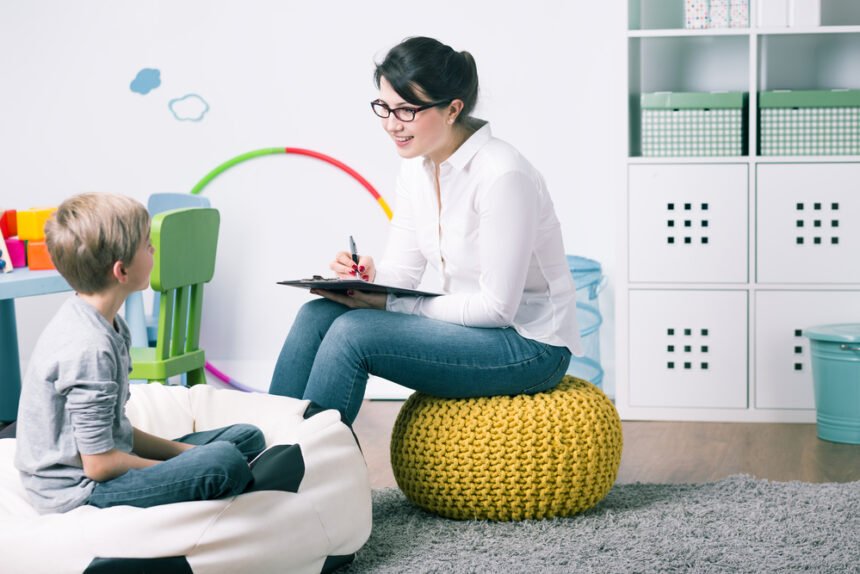Both children and adults have mental health needs. Today, we know more than ever about child psychology and the need to support children who have had traumatic experiences or are experiencing symptoms of a mental health disorder.
Making the decision to take your child into therapy can be difficult. Many parents have strong emotions around counseling and are affected by fears of stigma or concern that their child is ?different.? You may find benefits of using online therapy, but in-person therapy has its own benefits as well.
It?s important to realize, however, that therapy is there to help children and make their lives better. Going to therapy is not a reflection on the child or the parent, it?s simply a tool for families that could benefit from mental health support.
With that said, counseling can be an intimidating experience for children. Before your first session, it?s a good idea to prepare and do everything you can to ensure that your child feels safe in therapy.
Types of Therapy for Children
Children have different mental health needs. Depending on your child?s situation, one of the following therapy types might be suggested.
Behavioral Therapy
Many children can benefit from behavioral therapy, which has been used to treat a range of mental health disorders, including anxiety, depression, eating disorders, PTSD, and more. Children will learn new, healthier behaviors and address fears they have in order to live happier, more comfortable lives.
Developmental Therapy
In children, developmental delays can be a cause for concern. Developmental therapy can help identify the causes of these delays and give families strategies for helping kids ?catch up? to their peers. Early intervention can make a huge difference in children?s lives. There are many different types of developmental therapy, including some therapies for children with autism.
Cognitive Processing Therapy
Children who have been through traumatic experiences typically need lots of support to move forward. Cognitive processing therapy is very helpful for individuals with PTSD and can help people modify their patterns of thinking so they can improve their quality of life and reactions to daily life. It is very important to get help for children with a history of trauma as soon as possible.
Signs of Childhood Trauma
When most people think of childhood trauma, they imagine horrific situations involving abuse. While these cases do exist, they are not the only source of childhood trauma. Even parents with the best intentions can?t always protect their children from harm.
Children who have been through traumatic experiences should be supported by a mental health professional as soon as possible to prevent as much long-term harm as possible. Some signs of childhood trauma may include:
- Nightmares
- Depression
- Weight loss or eating disorders
- Separation anxiety
- Guilt and shame
- Difficulty sleeping
Obviously, some of these symptoms can have a range of causes, so don?t jump to conclusions. But it is important for parents to be alert and on the lookout for signs of trauma.
When to Seek Therapy for Your Child
Parenting has its ups and downs, and it?s normal for children to go through some rough patches during their development. It?s only necessary to seek therapy when a child is showing signs of more serious problems or has developed issues in several different areas of life.
Children who experience chronic anxiety and depression may benefit from counseling. It?s also important to take talk of self-harm seriously. If you?re in doubt about whether or not your child needs therapy, talk to your pediatrician and get their advice.
Tips to Help Your Child Feel Safe and Secure During Therapy
Therapy can be scary and intimidating for some kids. Help them feel safe and secure by following these tips:
1. Focus on Finding the Right Fit
It?s important to find a therapist your child ?clicks? with. They need to be able to trust their counselor to make progress. Don?t be afraid to make a switch if things aren?t working out after a few sessions.
2. Keep it Consistent
Don?t just make an occasional appointment. Going to therapy consistently will help kids feel safe and willing to engage in the process.
3. Don?t Put On the Pressure
Try not to make a big deal out of going to therapy. It?s important to not make your child feel like they?re ?bad? or that you expect something specific from them. Putting pressure on kids about their appointments will only make them feel anxious or fearful.
4. Don?t Bribe or Punish
It?s important not to bribe kids to go to their appointments. You should also not punish them if they are reluctant to attend their session. Ask the therapist for advice if your child is resistant.
5. Don?t Give Up Therapy isn?t an instant cure. Your child might need long-term counseling before you will see any meaningful changes. Be patient and don?t give up. You?re giving your child their best chance at success by taking them to therapy!

